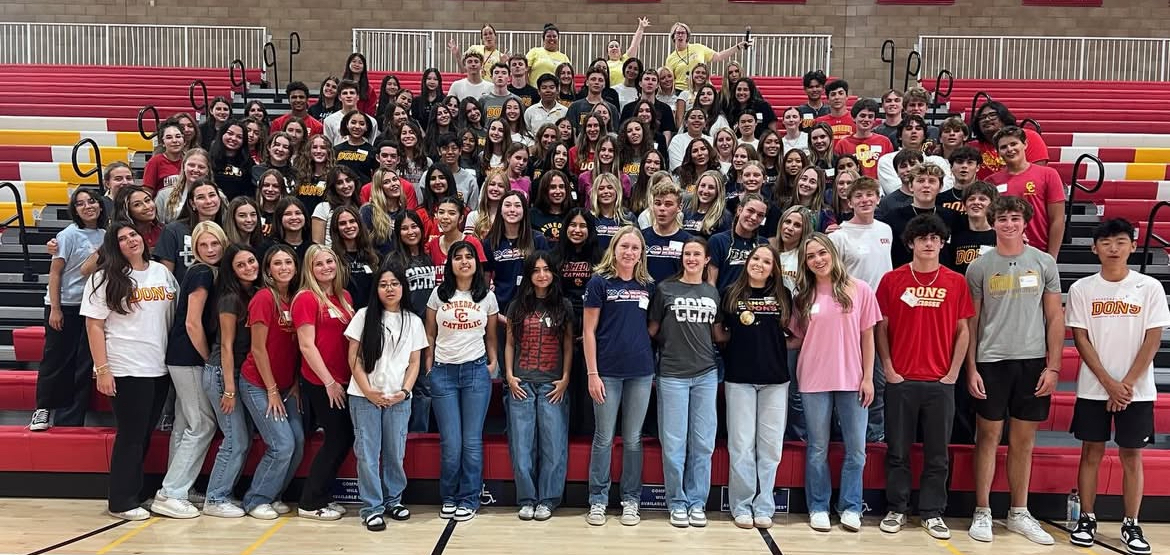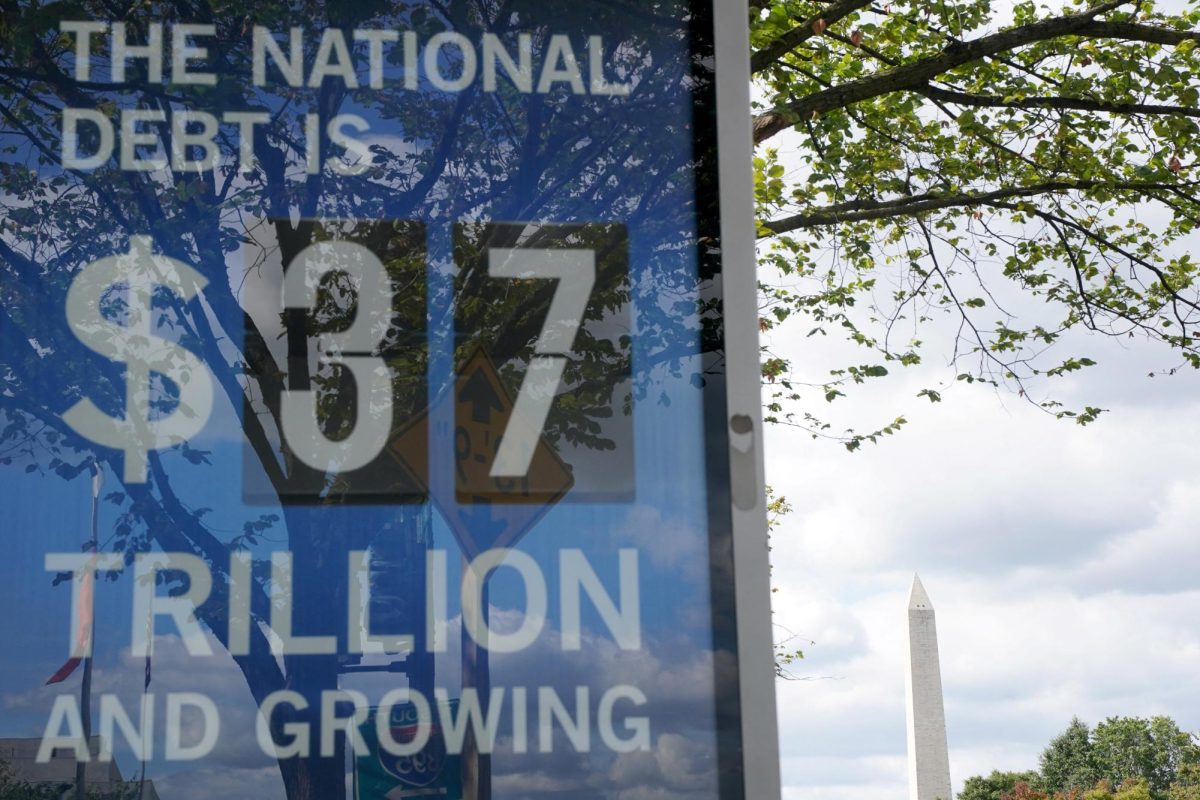From gay wedding cakes to HB757, the first amendment provides the answer
April 6, 2016
A conversation brought to the forefront recently with the conclusion of a lawsuit between a lesbian couple and a bakery in Oregon can be summarized as such:
Should the law require private business owners to provide services to everyone, despite business owners’ personal or religious beliefs that are not accepting of the potential consumer’s way of life?
Another way to state it:
Should the law require private business owners to provide services to everyone?
Yes, the second version of the question is in fact just another way to state the first version. I know what you’re thinking: the additional details after the comma provide more information that suggests the reason for “not providing services” is because of discrimination toward a particular group.
In the case of the Oregon bakery lawsuit, the discrimination was directed toward a homosexual couple. Melissa and Aaron Klein, owners of the Oregon bakery shop, refused to bake a wedding cake for the homosexual couple, Laurel and Rachel Bowman-Cryer, citing religious beliefs as their reasoning.
When it comes to legislation, the Klein’s reasoning is irrelevant. The bottom line is this: legislation that would mandate business owners provide services to everyone is a violation of fundamental American freedoms. The Bowman-Cryer’s complaint to the labor bureau, therefore, is unjustified because it gets government involved in something in which government should not be involved. Seeing the outcome of the case; unfortunately, our government has forgotten this.
That’s right. The United States government cannot force people, via legislation, to do what they “should.” A giant misconception that is becoming more widespread by the minute is the idea that “what you should do,” or “what you ought to do” is objective. This is a ridiculous notion – nearly everything is subjective. Don’t believe me? Look at the issue of abortion. Please alert me when you find a “pro-choice” person who says they support murdering babies, or when you find a “pro-life” person who says they are violating individual rights of women in their beliefs.
While one person might condemn the Kleins, labeling them “homophobes,” another person might find the Kleins’ choice is entirely justified.
The government exists for one reason and one reason alone: to protect American citizens’ right to life, liberty, and the pursuit of happiness. The government does not exist to tell people what is right and what is wrong. The government is not the “parent” to a nation of “children,” but rather, it is the power structure built to protect its citizens’ rights to those three crucial freedoms that summarize the whole of American freedom.
Speaking of “the whole of American freedom,” the concept is explained in detail in the recently forgotten (by some) 229-year-old document called the U.S. Constitution. Shortly after the Constitution’s signing in 1787, the states of the union called for greater constitutional protection of individual liberties. In response, James Madison wrote ten amendments, which make up the Bill of Rights. The First Amendment is as follows:
“Congress shall make no law respecting an establishment of religion, or prohibiting the free exercise thereof; or abridging the freedom of speech, or of the press; or the right of the people peaceably to assemble, and to petition the government for a redress of grievances.”
Magically, it seems, all of our problems are solved. Thanks to the First Amendment, there is no need for House Bill 757 of Georgia, the bill that was likely written in response to the Oregon incident.
Briefly summarized, HB757 declares “faith-based organizations” be allowed to deny services to people if doing so violates their “sincerely held religious beliefs.” Georgia Governor Nathan Deal vetoed the bill, but not for its obvious redundancy (given the First Amendment.) He is quoted saying he will not sign a bill that “allows discrimination in our state in order to protect people of faith.”
It sounds like Governor Deal needs to retake “Constitution 101.” Rather than condemning HB757, he should have recognized the First Amendment already protects everyone.
Under the First Amendment, the Kleins have the right to deny service to the Bowman-Cryers. No, it’s not just because of religion. If the Kleins were atheists, they’d still have the right not to bake a wedding cake for the Bowman-Cryers. If the Kleins wanted to put a sign in their window that says, “no service to gays,” they could.
These things are legal under the First Amendment, and it should stay that way. Before you click away from this article fuming, I promise you I’m not what some might call a “homophobe.”
If I were planning my wedding, and I parked in front of a bakery to see the sign, “no service to gays,” I would pull right back out of the parking spot and find another bakery. Why? I do not want to support financially, with my business, the kind of people who would hang such a sign in their window.
Just like I have the right to choose whether I buy goods or services from any particular business, so does everyone else in America. What happens if a lot of people decide not to support a business, for whatever reason? It is only a matter of time before that business goes out of business. This is scenario is one of the great aspects of capitalism, often described as “voting with your dollars.”
The important concept that has recently been forgotten by many Americans and, evidently, by some of our elected governmental officials, is that the power rests in the hands of the people.
Outside our basic government-provided protections of life, liberty, and the pursuit of happiness, and because of these basic protections and the protections of the U.S. Constitution and Bill of Rights, the people have the right and power to punish “homophobic” bakers by not supporting them with their business.
The people also have the right to go through life following their personal beliefs, values, or morals as dictated, perhaps, by their religion, so long as those beliefs do not cause them to infringe upon others’ Constitutional rights. There is no such thing as the right to be served by someone else.
If you’re still not convinced, imagine you just applied for a job. Is it the business owner’s duty to hire you? Do you have a right to be hired? Of course not. This is the same situation.
It is under dispute whether Voltaire said this quote, but it is a good quote, nonetheless:
“I don’t agree with what you say, but I will defend to the death your right to say it.”
You and I may not agree with the Kleins’ decision, but does that mean the government should step in and forcefully “change their minds” with legislation?
In a time when people are using physical force, blocking roads and public university doors to prevent others from hearing speech they disagree with, it is important to take the Constitution out of our dusty desk drawers, look at the everyday happenings in our country and perhaps reevaluate our positions.
If everyone is guaranteed the same rights under the Constitution, hasn’t this recently sought-after “equality” already been achieved?





















































